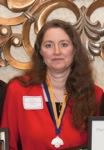Transferring Your Ph.D. Chemist Skills to a Nontraditional Career
By Lisa M. Balbes, Ph.D., Balbes Consultants LLC
During graduate school, you’ve been thinking about chemistry, your particular field of research, and specific scientific techniques and methods. But have you spent any time thinking about yourself, and what you really want to do for the next step in your career?
The traditional career path for a Ph.D. chemist is to pursue a professorship or to do research in a government or industry laboratory. Fortunately, during your graduate career you probably got hands-on teaching and research experience to support the pursuit of these career trajectories. But what if you realize that you really don’t like teaching? Or that hands-on bench chemistry, or even research, is not what you love? Do you need to start over in order to pursue a nontraditional path? Absolutely not!
Consider Your “Transferable Skills”
During your postgraduate studies, you have been acquiring all kinds of knowledge and skills that the “real world” values highly. If you spend some time thinking about knowledge you have gained, as well as what you have to offer a potential employer, you will find all sorts of “transferable skills”—things you know how to do that you can immediately apply in another field.
For example, while you may have found that you don’t like teaching a chemistry lab class, you may also have discovered that you really enjoy mentoring others and helping them one-on-one. This might lead you to explore careers in technical support, where you instruct individual scientists in how to use new equipment after they have purchased it.
Maybe you realized that while research chemistry is not for you, what you are really good at is writing up the results of that research into journal articles and reports. In that case, technical writing or editing would be a promising career path for you to explore.

Identify Your Strengths
Exploring your career options comes down to understanding what your strengths are and what you enjoy doing. Often these are the same, so it’s just a matter of identifying them. Start by asking yourself, “What are my most significant accomplishments so far in my career?” Then explain in detail (out loud or in writing) what made them so satisfying.
A colleague recently told me his most significant accomplishment was an oral presentation he gave to his department. However, when asked to elaborate, he talked at length about how the work bridged two departments, and he had to do all sorts of political maneuvering to get them to agree on how the work would be presented. He did not mention the technical subject of the talk once. What made it so significant for him was not the science, but serving as the bridge between departments and negotiating deals between people. He is now looking into a career in technology transfer, where serving as a bridge between companies will be the main focus of his day.
Some other questions you can use to identify your transferable skills are:
- What do other people say you’re good at, or ask you for help with?
- What are you doing when you lose track of time?
- Are you a people person or a data person?
- Are you a big picture guy or a detail gal?
- Is it the tool or the technique that excites you?
- Do you prefer organizing people or things?
- What sort of things do you do in your free time? (You learn there too!)
- What do you feel passionate about?
Focus on Your Passion
Consider the course of your career and ask yourself, “When am I having the most fun?”
If writing your dissertation is the most fun part of your career, then looking into careers in technical writing might be in order.
If explaining to nonscientists how your research is going to make the world a better place gets your juices going, a career in public affairs or public relations might be for you.
If you wake up in the morning thrilled that you’re going to be helping one of your friends figure out what to do with his or her career, perhaps the profession of human resources is in your future.
If you look forward to discussing things with your adviser and convincing him or her that yours is the better way to proceed, then perhaps a career in technical sales deserves some consideration.
If learning about and implementing safer ways of doing things, and then ensuring that your labmates follow the safest procedures, is where you prefer to spend your time, then a career in chemical health and safety (inspector, agent) might be for you.
Throughout your career, you have collected reams and reams of data and learned various techniques of data analysis and critical thinking to turn that data into actual useful information and hypotheses. If the analysis interests you more than the collecting, maybe being a business analyst position is for you.
Perhaps you have had to consider the intellectual property (IP) implications of your research. Instead of the rigorous right-and-wrong, black-and-white of science, did you enjoy the more flexible shades-of-gray world of intellectual property? If so, you may want to talk to IP law firms, many of which hire Ph.D. scientists straight out of graduate school to serve as technical specialists.
No matter which of your skills you enjoy using the most, there is sure to be a career path that will take advantage of that. Once you have identified the skills you want to use, talk to career counselors and/or more experienced scientists, and ask them what career paths might let you do that. Find professional societies that cover your new field, and see what career resources they have. See a list of resources to start your exploration.
Everything you have done so far has taught you something. In some cases, it taught you that you never want to do that again. In other cases, you learned that you were good at something unexpected, or you enjoyed using a new skill. If you take the time to identify the skills and tasks you truly enjoy, then explore career paths that will let you use them, you will have learned the most valuable lesson of all.

Lisa M. Balbes, Ph.D., of Balbes Consultants LLC is the author of this article. Lisa has been a freelance technical writer and editor for almost 20 years. She is also the author of Nontraditional Careers for Chemists, published by Oxford University Press.
Taking a Closer Look
Chemistry Grad Student & Postdoc Blog
Thoughts on “Transferring Your Ph.D. Chemists Skills into a Nontraditional Career”
CENtral Science: Just Another Electron Pusher
The beauty of transferable skills: How grad school prepares you for careers off the beaten path

